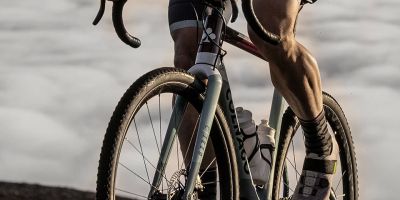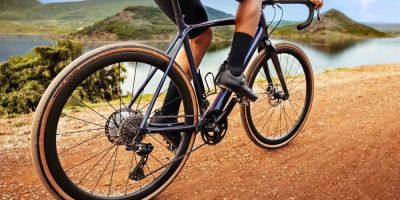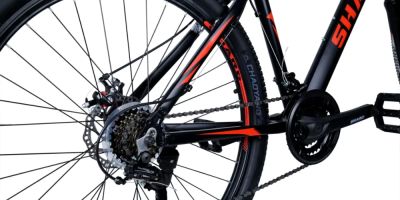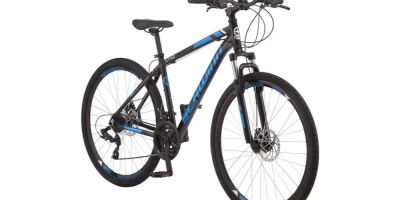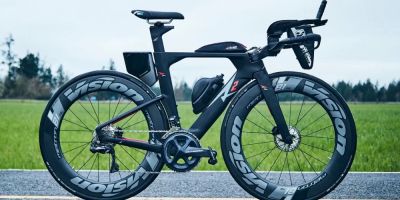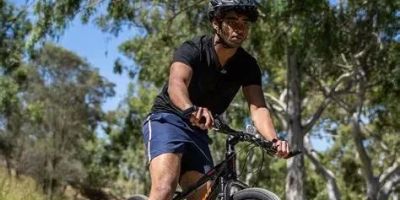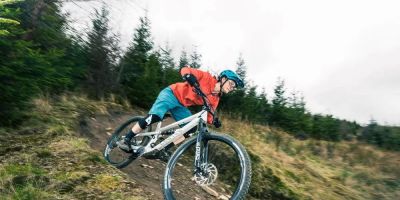Top Mountain Bikes for Conquering Technical Trails
1. The Importance of Choosing the Right Mountain Bike for Technical Trails
As an avid mountain biker, I’ve learned that the right bike can make all the difference when it comes to tackling technical trails. Technical trails, characterized by steep descents, rock gardens, roots, and tricky switchbacks, require a bike that can handle rough terrain while providing stability, control, and comfort. I vividly remember my first time on a challenging technical trail; I was riding a standard hardtail mountain bike, and while I managed to finish, the experience was far from smooth. My ride was uncomfortable, and my control over the bike was less than ideal. This led me to research and ultimately upgrade to a bike designed for technical trails, and I’ve never looked back.
The right mountain bike for technical trails must have certain features such as a sturdy frame, excellent suspension, and responsive brakes. Over the years, I’ve tested several bikes, and what I’ve realized is that each rider has different preferences depending on their experience level, riding style, and the specific technical demands of the trails they frequent. In this article, I’ll break down what makes a mountain bike suitable for technical trails and review some of the best options available for riders who want to take their skills to the next level.
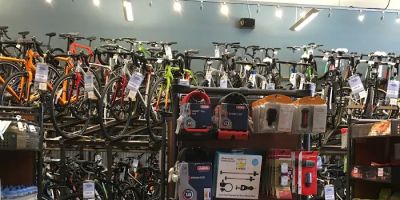
Mike's Bikes of Berkeley
1824 University Ave, Berkeley, CA 94703, USA
2. Key Features to Look for in a Mountain Bike for Technical Trails
Before diving into specific bike models, it’s essential to understand the features that are crucial for technical trail riding. These are the key attributes to look for when shopping for a mountain bike:
- Suspension: A full-suspension mountain bike is often the best option for technical trails. It absorbs shocks from rough terrain, giving you more control and comfort. Hardtail bikes, which only have front suspension, may not offer enough cushion when facing challenging descents or obstacles.
- Frame Material: The frame should be durable but not overly heavy. Aluminum is a popular choice for its balance of strength and weight, while carbon frames offer the lightest option but come at a higher price point.
- Tire Width: Wider tires provide more grip, which is essential for maintaining traction on rocky or muddy surfaces. A mountain bike with tires ranging from 2.3 to 2.8 inches is ideal for technical trails.
- Geometry: Bikes designed for technical trails have a slack head angle, which gives you better control on descents. A longer wheelbase adds stability, making it easier to navigate through obstacles.
- Brakes: Disc brakes are a must for technical riding. Hydraulic disc brakes offer superior stopping power, especially in wet or muddy conditions.
3. Best Full-Suspension Mountain Bikes for Technical Trails
After testing a few different mountain bikes over the years, I can confidently say that full-suspension bikes are the best for handling technical trails. Here are some of my top picks:

Mike's Bikes of Berkeley
1824 University Ave, Berkeley, CA 94703, USA
1. Trek Slash 9.8
The Trek Slash 9.8 is a standout for anyone serious about tackling technical trails. With 160mm of travel at the front and rear, this bike can absorb even the roughest impacts. The frame is made of high-quality carbon, which keeps the bike lightweight without compromising strength. The geometry is well-suited for steep descents and technical climbs, offering a balanced and stable ride. The Trek Slash’s responsive suspension and smooth handling have made it one of my go-to bikes for aggressive trail riding.
2. Specialized Enduro Comp
Specialized is known for crafting bikes that excel in technical environments, and the Enduro Comp is no exception. This bike features a 170mm front and 160mm rear suspension, which makes it ideal for aggressive descents and rocky trails. The design of the Enduro Comp ensures great handling and control, even in high-speed situations. I’ve had several exhilarating experiences riding this bike down technical trails, and it never failed to impress with its stability and comfort.
3. Santa Cruz Hightower
The Santa Cruz Hightower is another excellent choice for technical trail riding. With its 150mm front and 145mm rear suspension, it offers ample travel to handle tough terrain. What I love most about the Hightower is its versatility—it’s perfect for both aggressive descents and technical climbs, making it a great all-around bike for trail riders. Its carbon frame is both lightweight and durable, and the bike’s geometry is tailored to keep you stable on rough, unpredictable trails.
4. Hardtail Mountain Bikes for Technical Trails
While full-suspension bikes are often the go-to for technical trails, hardtail bikes can also handle these trails well, especially for lighter riders or those looking for more of a challenge. Hardtails are generally less expensive and lighter, which makes them an appealing choice for riders who want speed and agility. Here are some of the best hardtail options for technical trail riding:
1. Cannondale Trail 5
The Cannondale Trail 5 is an excellent hardtail mountain bike for those new to technical trails. With its 100mm of front suspension, it offers just enough cushion to handle rocky and root-laden trails. The bike's geometry is designed for trail riders who want both speed and control, making it a fantastic entry-level bike for those starting out on technical terrain. I’ve taken the Cannondale Trail 5 through moderate technical trails, and it has handled the bumps with ease.
2. Giant Fathom 29 1
If you're looking for a fast and responsive hardtail mountain bike, the Giant Fathom 29 1 is a great option. The 29-inch wheels offer excellent rolling efficiency, allowing you to power over obstacles and technical features without losing momentum. The bike’s lightweight frame and solid suspension fork help it excel on tricky trails, giving you the ability to navigate tight turns and rocky paths with confidence. For a rider who enjoys a bit of speed on technical trails, the Fathom 29 1 is an outstanding choice.
5. Considerations for Choosing the Right Mountain Bike for You
Choosing the right mountain bike for technical trails comes down to understanding your riding style and the type of terrain you plan to conquer. If you’re a beginner, a hardtail may be more than enough, offering the simplicity and lightness you need for a smooth ride. However, if you're an experienced rider or someone who frequently takes on aggressive technical trails, investing in a full-suspension bike will likely provide the stability and comfort needed for challenging rides.
Also, take into account the bike's geometry and how it fits you. A bike that feels comfortable and is the right size for your body can make a world of difference when riding technical trails. The more comfortable you feel, the more confidently you can tackle obstacles like rocks, roots, and drops without hesitation.
6. Expert Advice and Where to Buy the Best Bikes
If you’re unsure where to begin your search for the perfect mountain bike for technical trails, consulting with an expert can help you make an informed decision. Many bike shops offer fitting services, where they can help you find the right size and model for your body type and riding style. Some shops also offer demo bikes, allowing you to test ride different models to see which one feels the best on rough terrain.
For the best deals and expert advice on purchasing a mountain bike, I recommend visiting websites like Healthy Cycling, where you can get personalized recommendations based on your preferences and budget. You can also browse reviews and ratings from other mountain bikers to find the perfect bike for your technical trail adventures.

